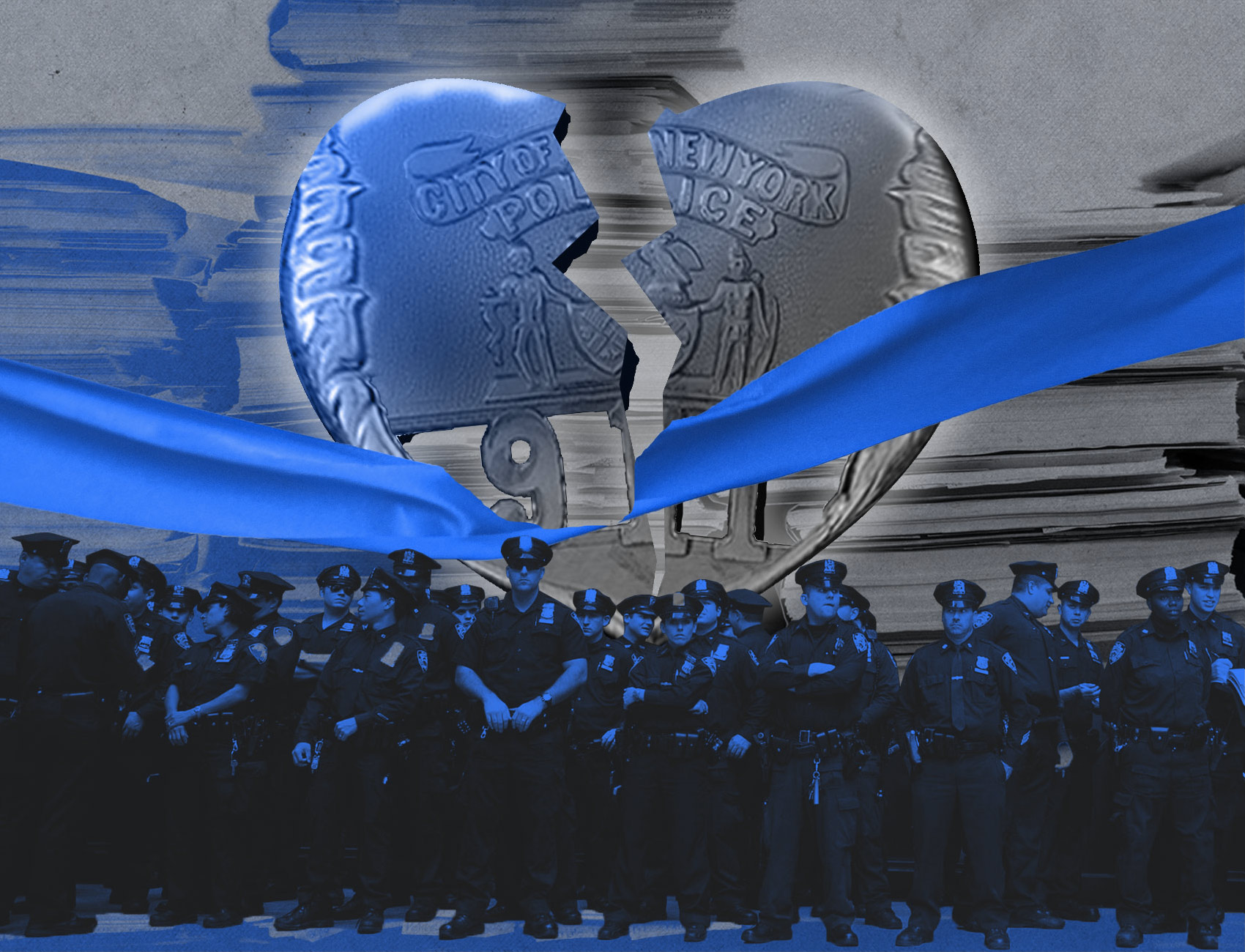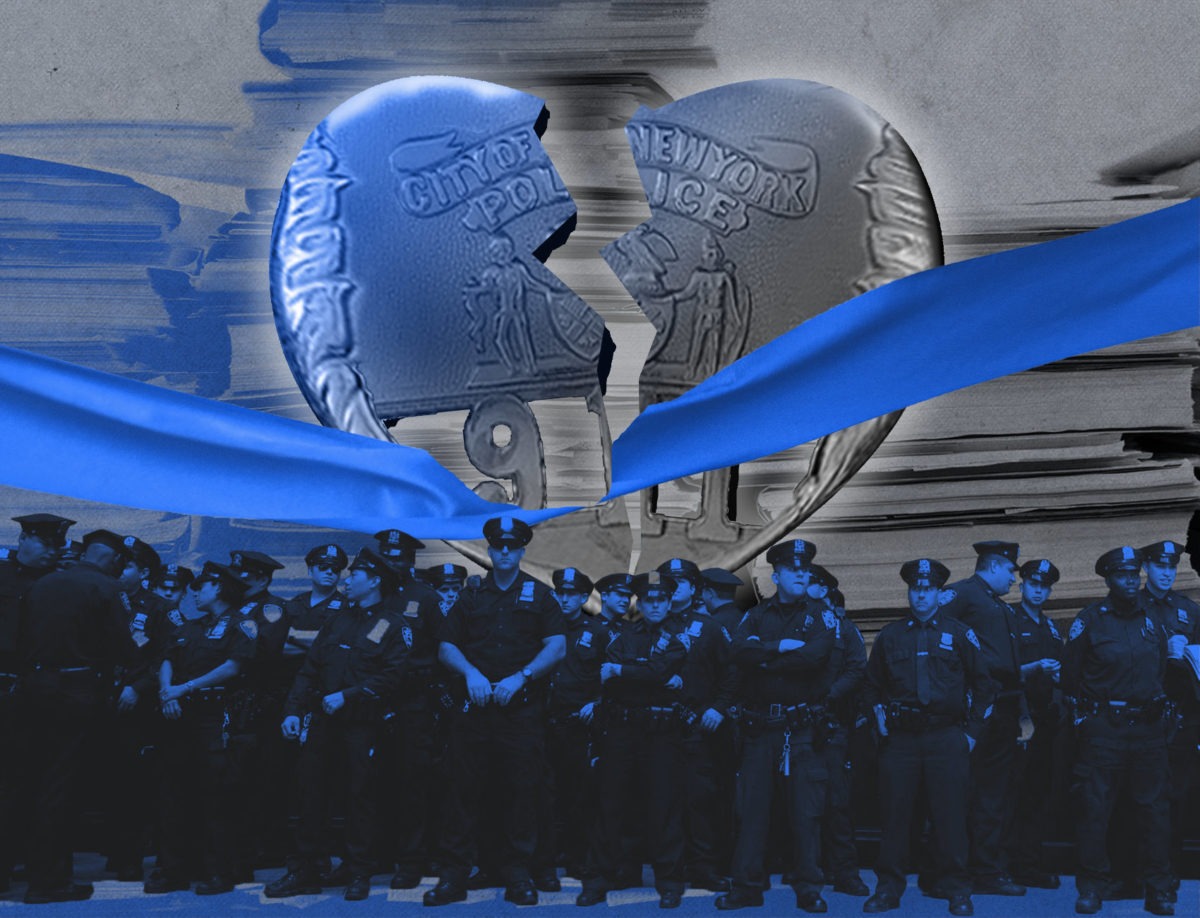Newsletter
“Woman of the Year” Mariska Hargitay Should Quit “SVU”
Last month, Glamour magazine featured “Law and Order: Special Victims Unit” star Mariska Hargitay on the cover of its “Women of the Year” issue. On Nov. 8, an avalanche of A-list celebrities — including “SVU” co-stars Christopher Meloni and Ice-T, actress Melissa McCarthy, and #MeToo co-founder Tarana Burke — honored Hargitay at the Women of the Year Awards which was held at the Rainbow Room, a ballroom that serves as one of the epicenters of New York City high-society.

Since launching our NewsMatch campaign in November, we’ve almost hit our $30,000 goal, with the help of generous contributions and matching funds.
Now we’ve raised our target to $40,000 by the end of the year.
If you love this newsletter and The Appeal’s reporting, donate today and help us make major headway toward funding more vital journalism in 2022.

“Woman of the Year” Mariska Hargitay Should Quit “SVU”
by Jerry Iannelli and Meg O’Connor, The Appeal
Last month, Glamour magazine featured “Law and Order: Special Victims Unit” star Mariska Hargitay on the cover of its “Women of the Year” issue. On Nov. 8, an avalanche of A-list celebrities — including “SVU” co-stars Christopher Meloni and Ice-T, actress Melissa McCarthy, and #MeToo co-founder Tarana Burke — honored Hargitay at the Women of the Year Awards which was held at the Rainbow Room, a ballroom that serves as one of the epicenters of New York City high-society.
But Hargitay’s selection as one of the magazine’s “women of the year” is an unfortunate one, given that she and everyone else involved with “SVU” are complicit in what is likely the single worst piece of pro-police propaganda produced over the last few decades. “SVU” — the longest-running scripted primetime live-action show in U.S. television history — has spent more than 500 episodes laundering the reputation of the NYPD and its sex crimes division. In reality, the NYPD has notoriously neglected its sex crimes unit for years, leading to miserable outcomes for victims. In recent years, detectives with New York City’s Special Victims Division have repeatedly discouraged victims from moving forward with their cases, failed to collect basic video and DNA evidence, and have, on more than one occasion, bungled a rape case so badly that alleged attackers went on to attack several more women.
The Appeal spoke with five women who sought help from the NYPD after being sexually assaulted. All of the women had shockingly bad interactions with the special victims detectives assigned to their cases. Several said that the “SVU” show itself does a disservice to survivors of sexual assault: through its patently false depiction of police interactions with rape victims, SVU has helped create a public perception that police are necessary and good at responding to sex crimes. This fraudulent image makes it more difficult to change the way police handle sex crimes.
“‘Law & Order: SVU’ gave me the false impression that this squad cared deeply about victims and their jobs,” said Gina Tron, a writer who reported a sexual assault to the NYPD in 2010. “The show is nothing more than a fantasy, as an accurate dramatization of the unit would depict detectives sitting around the station disparaging rape victims in front of their peers and pressuring them to drop their cases so they could avoid doing work.”
Others said the same. “In reality, it’s cops who are causing the most harm to victims and survivors,” said Alison Turkos, a survivor and activist who is suing the NYPD and Lyft over their handling of the kidnapping and assault she suffered in 2017. Turkos called “SVU” “copaganda.” “The show is more hurtful than helpful, and it needs to be taken off the air. Survivors deserve better.”
Racheal Stirling told The Appeal that she had not seen an episode of “SVU” before she was assaulted, but she did know the show mostly featured extreme acts of sexual violence. So when her case was ignored by the NYPD Special Victims Division — despite having a full confession from the man who attacked her — she assumed her case must have “dwarfed in comparison to their other cases.” She later learned that the detective assigned to her case simply did not bother to investigate it. Stirling, who was violently assaulted, said the NYPD gaslit her into believing nothing had happened to her. For weeks, the police neglected to arrest the man who assaulted her and made an arrest only after he assaulted other women. Stirling later found out that the detective assigned to her case had himself been accused of groping another rape victim whose case he was assigned to.
“If I had a dollar for every time I heard, ‘This can’t be true. Olivia Benson would never let this happen!’ I would have enough to cover my hospital bills and therapy for my trauma,” Stirling said, referring to Hargitay’s “SVU” character.
“SVU” posits a world where cops like Hargitay’s Benson help survivors heal, where detectives follow leads and meticulously collect evidence, and where sexual assault investigators are knowledgable, well-trained, and speak with empathy.
These attributes, as seemingly basic and integral to policing as they sound, are few and far between at the NYPD (and other police departments across the country). At the Special Victims Division, training has dropped precipitously last year. According to a 2020 survey of 20 anti-violence organizations and rape crisis programs that work directly with over 5,000 survivors of sexual assault across New York City, a strong majority of providers said the division is not doing a good job responding to survivors. Nearly all providers agreed that survivors feel ignored by police.
In 2020, the NYPD cleared (or “solved” through arrest or exceptional means) less than 30 percent of all rape cases citywide — a smaller percentage than the year before. That already awful number may be artificially inflated, since the department has historically labeled an unusually high number of rape cases as “unfounded” (false or baseless), meaning those cases would not be included in the overall statistics.
The NYPD is not an anomaly: Local police departments around the country are routinely sued or criticized for failing to investigate rape cases and retraumatizing survivors.
Anny Crane, an activist and artist, reported her sexual assault to the NYPD the night that it happened in 2012. “The night was a blur, so I can’t say what I expected, but it certainly wasn’t being mocked by NYPD officers during a panic attack and left in the dark while navigating the system after reporting, down to my court hearing and medical bills,” she said. “I have joked that there was no Olivia Benson to hold my hand, but it’s true. Not only does she not exist, everything I encountered was the antithesis of how ‘SVU’ portrays victim advocacy. I needed someone but I never felt more alone.”
The show also infamously steals plots directly from rape survivors without their consent. Last year, ballerina Alexandra Waterbury recounted in Marie Claire that the show fictionalized her assault without consulting her at all. “This felt like they took advantage of me, which is a hell of a thing to do to a survivor of sexual violence,” she wrote.
Hargitay’s issues extend to her off-screen persona as well. Her Joyful Heart Foundation claims to fight to “end the backlog” of untested rape kits sitting in police departments nationwide. But Joyful Heart propagates the false narrative that the so-called backlog exists because law enforcement needs more funding to test rape kits. While it’s true that there are many untested rape kits across the United States, they are mostly untested because police did not send the DNA kits to a lab for testing. Money isn’t the issue — police choosing not to test crucial DNA evidence is. The term “backlog,” as former Appeal contributors Meaghan Ybos and Heather Marlowe have noted, implies that untested rape kits stacked up for reasons out of the department’s control, when that is simply not the case.
“Mariska Hargitay has built a great career from ‘Law and Order: SVU,’ and built a sterling reputation as a sexual assault advocate from her organization, the Joyful Heart Foundation,” said JL, who asked to be referred to by her initials. JL reported a sexual assault to the NYPD in 2012. “Unfortunately, the actual sexual assault advocacy community has had the misfortune of seeing what lies beneath the Hollywood veneer of the Joyful Heart Foundation, its consultants, and its founder.”
In a softball interview with Glamour last month, Hargitay choked up with pride when she told the magazine that she enjoys being “of service” and helping “people heal.” It seems, however, that the greatest service she could provide is quitting ‘SVU’ for good.
IN THE NEWS
Contact us at newsletter@theappeal.org so we can feature your work here!
People incarcerated in Florida will no longer be able to receive physical prints of photos from the outside, and all incoming paper mail will be scanned into an electronic format to be viewed on a tablet or via a kiosk. “I can think of many nights that I slept with a photograph of my family,” Laurette Philipsen, Florida Cares’ communications director and a formerly incarcerated person, told Miami New Times. “You can’t do that with a tablet.” [Alex DeLuca / Miami New Times]
Nearly 1,500 unhoused people died on the streets of Los Angeles between March 2020 and July 2021, according to a new report published by UCLA, in conjunction with researchers from the unhoused community. County coroner’s records reveal that the most common cause of death was accidental overdose. This number is likely an undercount, because the records did not include individuals who died in shelters or cars, or while receiving medical care. [Sam Levin / The Guardian]
Two supervised injection sites officially opened in New York City last week. The centers allow people to use drugs under the care of medical professionals, who are on hand to reverse overdoses and offer access to addiction treatment and other services. Although these resources have been operating for decades in other countries around the world, they are the first such spaces in the U.S. Officials say the staff reversed nine overdoses since opening. [Caroline Lewis / Gothamist]
A Tucson police officer will likely be fired after the release of body camera footage showing him fatally shooting a man in a motorized wheelchair. The man had allegedly brandished a knife after stealing a toolbox from Walmart. The police chief said he decided to terminate the officer because his use of deadly force constituted a “clear violation of department policy and directly contradicts multiple aspects of our use of force training.” The officer was off duty and working a special detail at Walmart. [Amy Simonson / CNN] See also: The Nov. 9 newsletter, which looks at the potential consequences of a crackdown on retail theft.
The Florida Supreme Court last week upheld a judge’s decision to impose a maximum prison sentence for a defendant who maintained his innocence after being convicted in a firearm case. The judge cited the man’s failure to take “responsibility” as a reason for the harsh sentence. In a dissenting opinion, one justice wrote that “punishing someone unless they confess guilt of a crime is a violation of due process and the right against self-incrimination.” The conservative majority disagreed. [Jim Saunders / NSF via Orlando Weekly]
That’s all for this week. Feel free to leave us some feedback, and if you want to support our official relaunch, please donate here. Until next time, the work continues.
